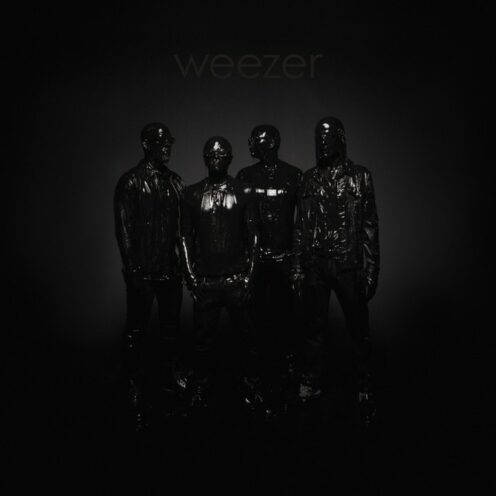
“You say it’s a good thing that you float in the air/That way, there’s no way I will crush your pretty toenails into a thousand pieces.”
Thus ends “Only in Dreams,”the closing track of Weezer’s 1994 debut Weezer (The Blue Album). Over time, and within the context of the song, these are words written about a girl so unforgettable, so unavoidable, that she is in the air and “in your bones.” (She’s also your ride home.) But the first time I heard this song – sometime around 2005 when I was 11 – I had absolutely no idea what those lyrics meant. I only knew that they were perfect, sounding suitably epic against the song’s explosive eight minutes.
Now, 13 studio albums into their career, fans and critics alike are still picking at Rivers Cuomo’s words as if they’re enough to justify ostracizing the band for another quarter century. Besides, they’re complete nonsense. Didn’t you read that piece about his spreadsheets? Each song is constructed to give the impression of a singular idea, but in reality, none of the words were actually written to go together. It’s all meaningless.
The truth is stranger than fiction, and despite years of the mythos surrounding Cuomo’s songwriting process (including walls lined with binders, filled with chord progressions and precise details about his daily food intake), I find it exceedingly hard to believe that Cuomo’s songs mean nothing to him. Weezer has been utilizing co-writers for a decade at this point (including Laura Jane Grace on the dreamy Black Album standout “Byzantine”), and it was only five years ago that the band delivered a widescreen comeback record rooted in historical concept and Cuomo’s strained relationship with his father.
All that being said, what does Weezer’s sixth self-titled album, The Black Album, tell us about the band as they exist in 2019?
At first, not unlike their other post-comeback releases, Weezer (The Black Album) can feel underwhelming. Among ten genuinely eclectic tracks, the band still fumbles from time to time. Two consecutive songs here showcase Cuomo’s worst lyrical habits; “I’m Just Being Honest” is too straightforward, with the singer simply lamenting the fact that fans and significant others take issue with his cold candor over shiny guitars that sound like a Make Believe B-side by way of U2. Then, Cuomo’s penchant for goofy drug references gets the best of him when he delivers lines like, “I’m so high on cookies, it’s insane” on the Spanish guitar-tinged “Too Many Thoughts in My Head.”
But elsewhere, The Black Album feels surprisingly genuine for the aging pop-rockers, brimming with new sounds, bold production choices from TV on the Radio’s Dave Sitek, and most importantly, honest reflection on how the world has turned and left the band following their return to relevancy. “Die, die, you zombie bastards,” Cuomo begs with a pang of exhaustion in his voice. And that’s the song’s hook; even sharing some Pacific Daydream’s modern indie-pop production, The Black Album is, at times, every bit as dark as the band promised. On “The Prince Who Wanted Everything,” he translates the life of Prince into a sorrowful cautionary tale against a simple rock and roll riff, reminding listeners that in death, the only thing that fame impacts are the number of beggars you leave behind.
But it all comes together on the album’s stunning closer, “California Snow.” This song is a calling card for the Weezer of 2019; so self-seriousness in its buzzsaw bass and electronic flourishes, it’s ridiculous, but it also rules. In the same song where Cuomo half-raps “This is the definition of flow,” he also manages to close the album with something as thematic as “Come on Judas, give me a kiss/Can’t take no more of this/Don’t nobody look at me/And nail me up by the wrists.”
Somewhere between the power-pop perfection of The Blue Album and the polished experiments of The Black Album, Weezer, perhaps the most innocuous rock band in the world, also became one of the internet’s most-hated. This continues to baffle me, not unlike much of the critical reception to this album so far. In a world where every new piece of media so desperately needs to be either the best of its kind or the worse, Weezer continues to churn out pretty good albums that seem to balance what fans expect from the band and how they want to challenge themselves as songwriters. At the end of the day, 25 years after The Blue Album, Weezer are (mostly) the same guys who felt safe in the garage and would rather take their boards to work. But to see them finally make a semi-successful jump at crossover appeal they’ve always craved? It’s hard to knock the hustle.